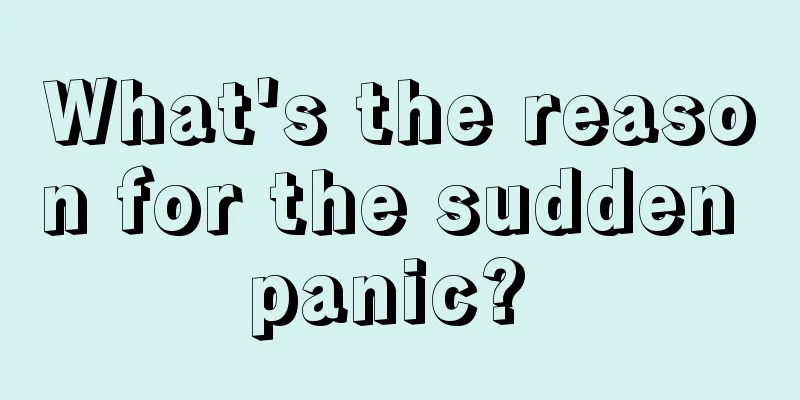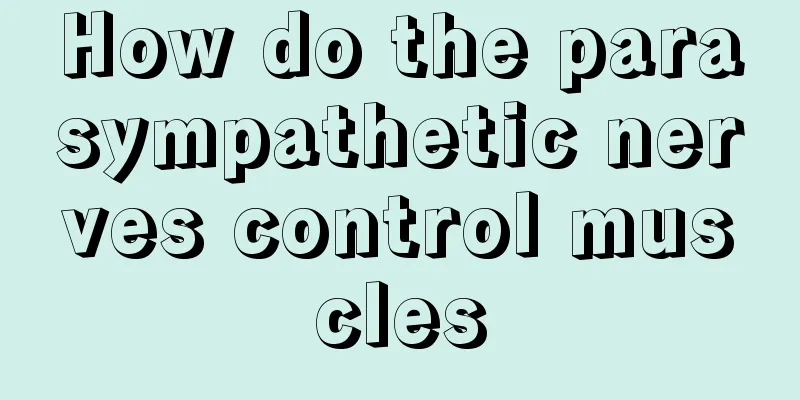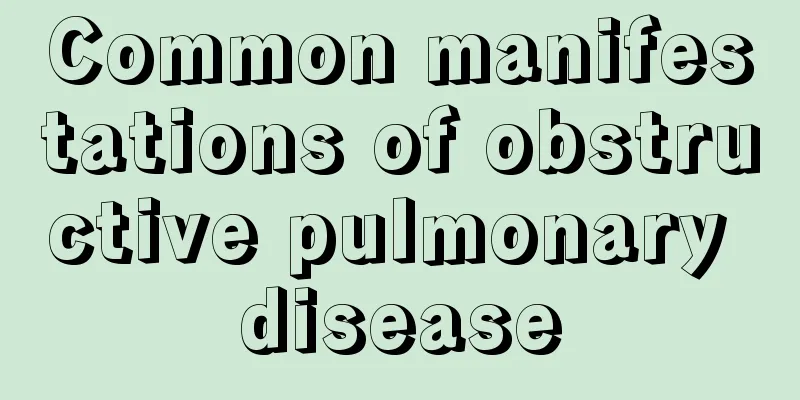What's the reason for the sudden panic?

|
Sudden onset of palpitations can be divided into two types: physiological and pathological. Palpitations may occur after intense exercise or drinking a lot of alcohol. It may also be due to pathological reasons. For example, high blood pressure, anemia, heart disease and other diseases can cause sudden palpitations. If you often experience palpitations, it is best to go to the hospital for examination. Common causes 1. Increased heart rate 1. Physiologically, normal people may experience palpitations after strenuous physical activity or mental excitement, drinking alcohol, or taking drugs such as ephedrine, caffeine, and adrenaline, which may also increase the heart rate. 2. Pathological causes include ventricular hypertrophy (such as rheumatic, hypertensive, coronary artery sclerosis, etc.), anemia, high fever, hyperthyroidism, and other diseases that cause increased cardiac output, all of which can cause palpitations. (ii) Arrhythmias such as tachycardia or bradycardia (such as high-degree atrioventricular block, etc.) and irregular heart rhythm (such as premature beats, atrial fibrillation, etc.) can cause patients to experience palpitations. (III) Cardiac neurosis is a clinical syndrome caused by autonomic nervous system dysfunction, which leads to cardiovascular dysfunction. In addition to palpitations, patients also have stabbing or dull pain in the left chest, difficulty breathing, and are often accompanied by other neurotic symptoms. Key points of consultation When seeing a doctor, pay attention to the time when the palpitations occur, its relationship with labor, and the accompanying symptoms. (1) Palpitations accompanied by chest pain can be seen in coronary artery ischemia, myocarditis, cardiac neurosis, etc. (ii) Palpitations accompanied by fever can be seen in rheumatic fever, hyperthyroidism, pericarditis, myocarditis, infective endocarditis and other febrile diseases. (III) Palpitations accompanied by syncope and convulsions may be seen in cardiogenic cerebral hypoxia syndrome caused by high-degree atrioventricular block, ventricular fibrillation or paroxysmal ventricular tachycardia and ventricular fibrillation. (IV) Palpitations accompanied by dyspnea can be seen in acute myocardial infarction, heart failure, severe anemia, etc. |
<<: What should I do if I get anxious and irritated and want to hit someone when I hear noise?
>>: Why do I feel anxious and easily wake up when sleeping?
Recommend
Medicinal effects of Tiger Eye Dieffenbachia
Some animals and plants in our country are not na...
How to masturbate most happily
For most boys who have no sexual experience, if t...
How to exercise after rectal cancer surgery
After the intestinal peristalsis is restored afte...
What should be checked for nasopharyngeal carcinoma
The examination of nasopharyngeal carcinoma is ma...
Esophageal and gastric mucosal heterotopia
Esophageal gastric mucosal ectopy is a congenital...
What are the clinical classifications of teratoma
Many people do not know the existence of teratoma...
The health secret in socks
1. The sock opening and sock tube should be of ap...
Can you feel the abdominal tumor?
Tumor is a common symptom in the human body struc...
How to treat recurrence of breast cancer
How to treat breast cancer recurrence? Breast can...
How long can I live with swollen hands and feet in the late stage of lung cancer?
How long can you live with swollen hands and feet...
What is the function of deer antler
Deer antler has great medicinal value because it ...
What does open wound mean?
An open wound is a wound that bleeds outward, whi...
What are the taboos of Tremella, Red Dates and Longan Soup
Most people nowadays know that they need to maint...
Causes of pancreatic cancer
The cause of pancreatic cancer is still unknown: ...
Which department should I go to for costochondritis
Costochondritis is a disease that can be cured, b...









